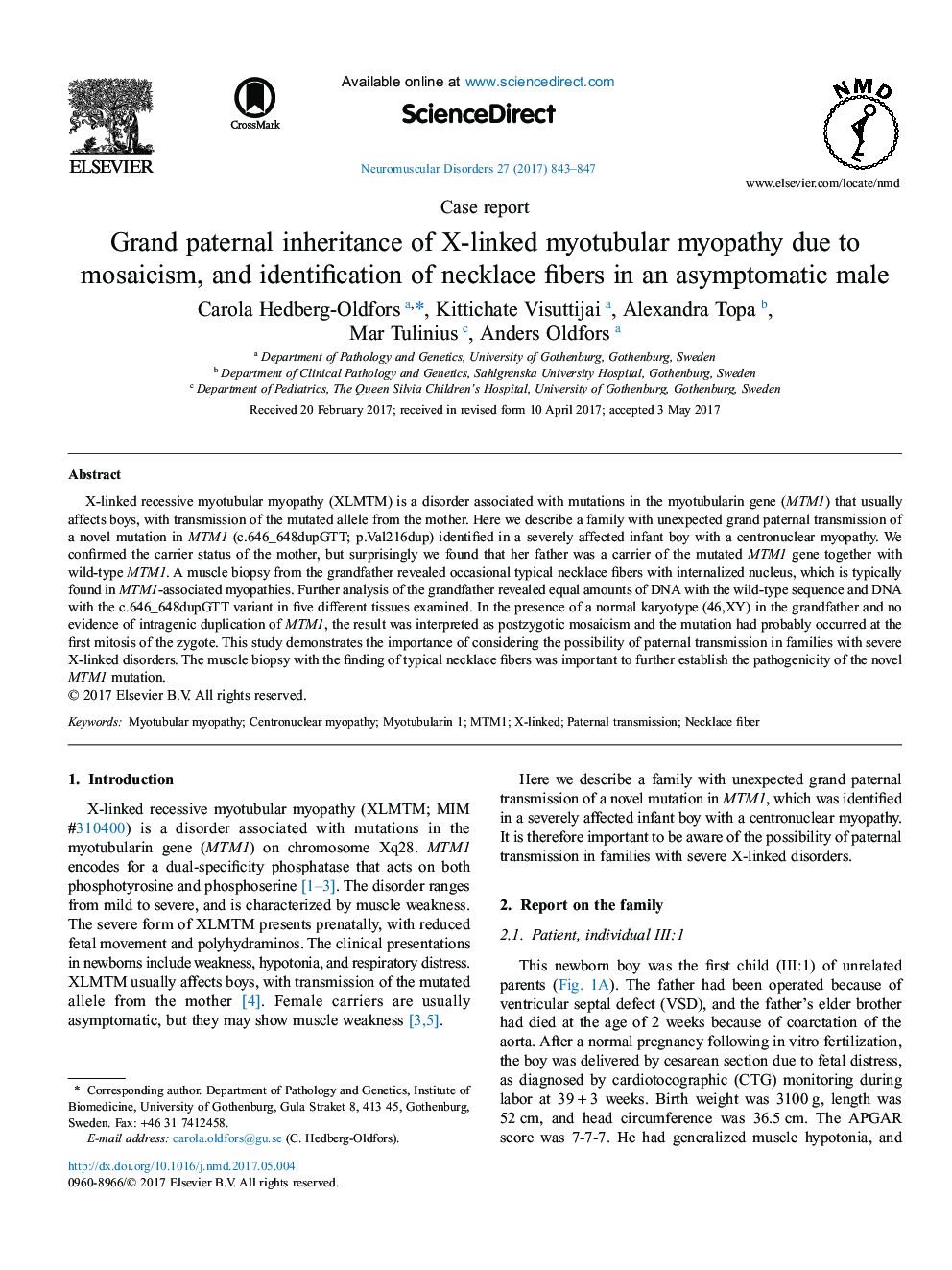| Article ID | Journal | Published Year | Pages | File Type |
|---|---|---|---|---|
| 5631979 | Neuromuscular Disorders | 2017 | 5 Pages |
â¢An unusual family with grand paternal transmission of X-linked myotubular myopathy.â¢Genetic analysis identified a novel mutation in myotubularin (MTM1).â¢Muscle pathology demonstrated necklace fibers in the asymptomatic grandfather.â¢The results indicate postzygotic mosaicism in the grandfather.
X-linked recessive myotubular myopathy (XLMTM) is a disorder associated with mutations in the myotubularin gene (MTM1) that usually affects boys, with transmission of the mutated allele from the mother. Here we describe a family with unexpected grand paternal transmission of a novel mutation in MTM1 (c.646_648dupGTT; p.Val216dup) identified in a severely affected infant boy with a centronuclear myopathy. We confirmed the carrier status of the mother, but surprisingly we found that her father was a carrier of the mutated MTM1 gene together with wild-type MTM1. A muscle biopsy from the grandfather revealed occasional typical necklace fibers with internalized nucleus, which is typically found in MTM1-associated myopathies. Further analysis of the grandfather revealed equal amounts of DNA with the wild-type sequence and DNA with the c.646_648dupGTT variant in five different tissues examined. In the presence of a normal karyotype (46,XY) in the grandfather and no evidence of intragenic duplication of MTM1, the result was interpreted as postzygotic mosaicism and the mutation had probably occurred at the first mitosis of the zygote. This study demonstrates the importance of considering the possibility of paternal transmission in families with severe X-linked disorders. The muscle biopsy with the finding of typical necklace fibers was important to further establish the pathogenicity of the novel MTM1 mutation.
